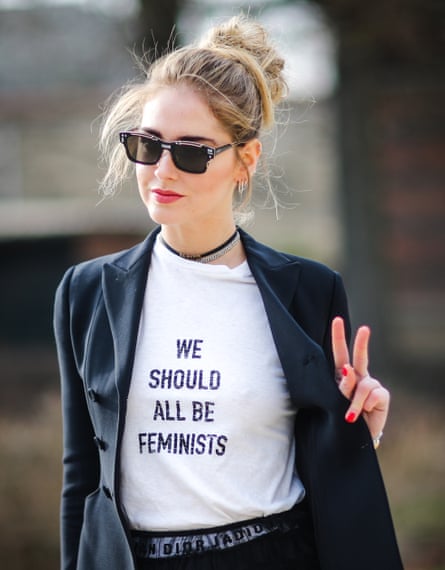Chiara Ferragni amassed a fortune through incessant selfie-taking as part of a marketing strategy that included imparting pearls of wisdom to her millions of online followers on how to be “effortlessly cool”.
But now the influencer – one of Italy’s most powerful – is struggling to maintain her own prestige after a scandal over a Christmas cake triggered a fraud investigation, leaving her empire teetering on the edge in what has become a cautionary tale for other social media stars.
The scandal dates back to late 2022, when Ferragni, 36, joined forces with the Piedmont-based company Balocco to endorse its pandoro Christmas cake. The Ferragni-branded cake was priced at €9 (£7.70), almost triple the standard version.
The company and Ferragni, who on Instagram alone has 29.4 million followers, claimed proceeds raised from the cakes would be donated to a children’s hospital in Turin.
In fact, Balocco had given €50,000 to the hospital prior to the initiative’s launch and made no further donations. Ferragni earned more than €1m from the campaign, according to Italy’s anti-trust authority.
In December, the authority hit Ferragni and the company’s owner, Alessandra Balocco, with fines of €1m and €420,000, respectively, for misleading consumers.
In a near-tearful video, Ferragni apologised to her followers for what she called “a communication error”, saying she would donate €1m to the hospital.
But her troubles didn’t stop there. After weeks of debate in Italy over the power of influencers and the money made out of products they promote, especially when presented as a charitable initiative, prosecutors in Milan said this week that they were investigating Ferragni and Balocco for aggravated fraud.
Ferragni has shed 200,000 followers since the scandal emerged, and key clients, including Coca-Cola, have dropped her.
In the wake of the fiasco, Italy’s communications authority on Thursday approved stringent new rules, akin to those applied to all media outlets, to improve transparency in social media posts produced by influencers with more than 1 million followers. Advertising must be more explicitly labelled to make it recognisable to the reader, or else influencers risk fines of up to €600,000.
The crackdown echoes recent events in France, where a law regulating paid-for content was introduced last year.
Giacomo Lasorella, Agcom’s president, said the rules would eventually be extended to smaller fry influencers. “We’re moving within a European framework … the digital world runs like a hare and the rules follow it,” he told the Guardian. “But this is an important step towards regulating this sector.”
Ferragni said she was feeling “calm” about the fraud investigation as she had “always acted in good faith”. At the same time, she has galvanised a team of top spin doctors to salvage her image.
Some observers have been quick to conclude that the fall from grace will spell the end for Ferragni. Others sympathise, arguing that she and her fellow influencers are given too much of a hard time.
“There is a lot of hatred towards them,” said Gianluca Perrelli, the CEO of Buzoole, a company specialised in influencer marketing. “For example, if the pandoro initiative had been done by a famous footballer or actor, there would probably have been a different reaction. The individual would have been condemned, but not all footballers or actors.”
after newsletter promotion
Perrelli said it was too early to judge the consequences of the fiasco. “Firstly, we need to see what the outcome of the investigation will be,” he added. “Secondly, we need to see how Ferragni manages the crisis.”

Born in Milan, Ferragni told the Financial Times in 2019 that she started out by taking selfies outside fashion shows, dying her hair blond from its reddish-brown because it made her stand out. In 2009, she launched a fashion blog called The Blonde Salad. The blog was so successful that she dropped out of a law degree at Milan’s Bocconi University, instead selling clothing and accessories under her own brand alongside her work as an influencer. She has earned several accolades from Forbes, has a series on Amazon Prime Video and has been studied as a business case by Harvard University. Ferragni’s empire is worth an estimated €40m.
On her website, she says she uses her influence “to make the world a better place”. Some argue that this, to a certain extent, has been true.
“Ferragni has done some very positive things in Italy,” said Michele Costabile, a marketing professor at Luiss University in Rome.
He cites her selfie in front Sandro Botticelli’s Birth of Venus in the Uffizi Galleries. The 2020 stunt, orchestrated by the then Uffizi director, Eike Schmidt, was mocked by Italy’s cultural elite, but after Ferragni shared the photo on Instagram it achieved its goal of inducing thousands of young people to visit the museum.
Ferragni was also tasked by the former prime minister Giuseppe Conte to persuade her young followers to wear face masks and adapt to social distancing rules at the beginning of the coronavirus pandemic.
“Right now we are at the centre of the storm,” said Costabile. “But I think this crisis will be healthy because it will accelerate regulation and create more trust in the market. Ferragni’s ability to recover will depend on her ability to learn from her mistakes.”







